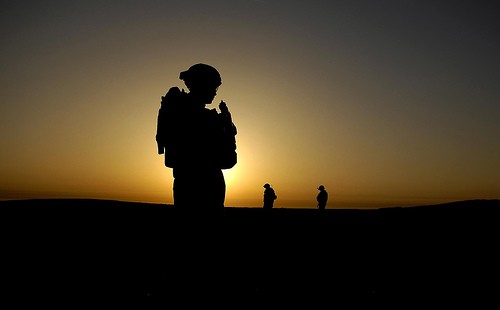Researchers Say as Many as 35% of Returning Iraqi War Soldiers Will Have PTSD
Researchers out of Stanford University say that as many as 35% of returning American soldiers will experience PTSD and that the VA hospital system needs to increase mental health services capacity to meet the coming need for care.
Management science researchers say that the VA hospital system can expect to treat PTSD in as many as 35% of returning Iraqi war soldiers.
The researchers, out of Stanford University and the Naval Postgraduate School, say that the rapid pace of combat redeployment (a rate not seen since world war 2) has contributed to this sudden dramatic increase in PTSD occurrence rates amongst armed forces veterans.
To come up with a projected PTSD incidence rate, the researchers used mathematical models that computed the future rate using current PTSD prevalence rates among returning vets and redeployment data as two of many variables.
PTSD can take months or even years to emerge after stress exposure and so the projected rate of 35% doubles what current surveys of returning troops reveal.
They say that the VA hospital system, which is already strained in its ability to deliver mental health services, needs to increase capabilities to meet a coming increase in demand. Planning for capacity increases is complicated by the time delay between stress exposure and the emergence of symptoms, as well as by the redeployment overseas of some affected troops. The researchers say their model, which predicts a real need for services over the next years, can help the hospital administrators plan effective capacity increases.
The research report can be read in the journal, Management Science.


